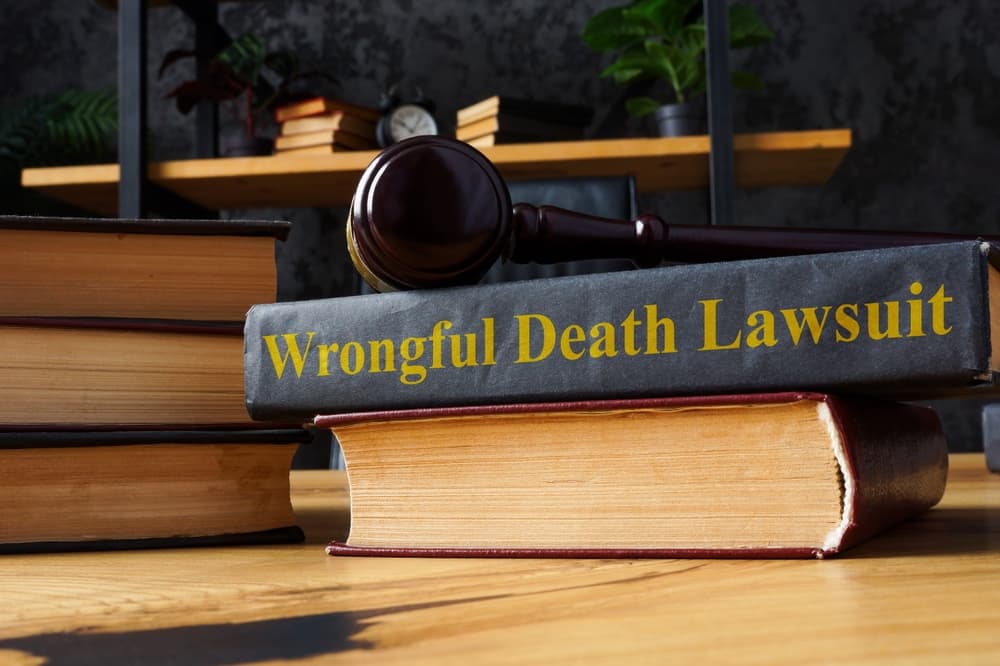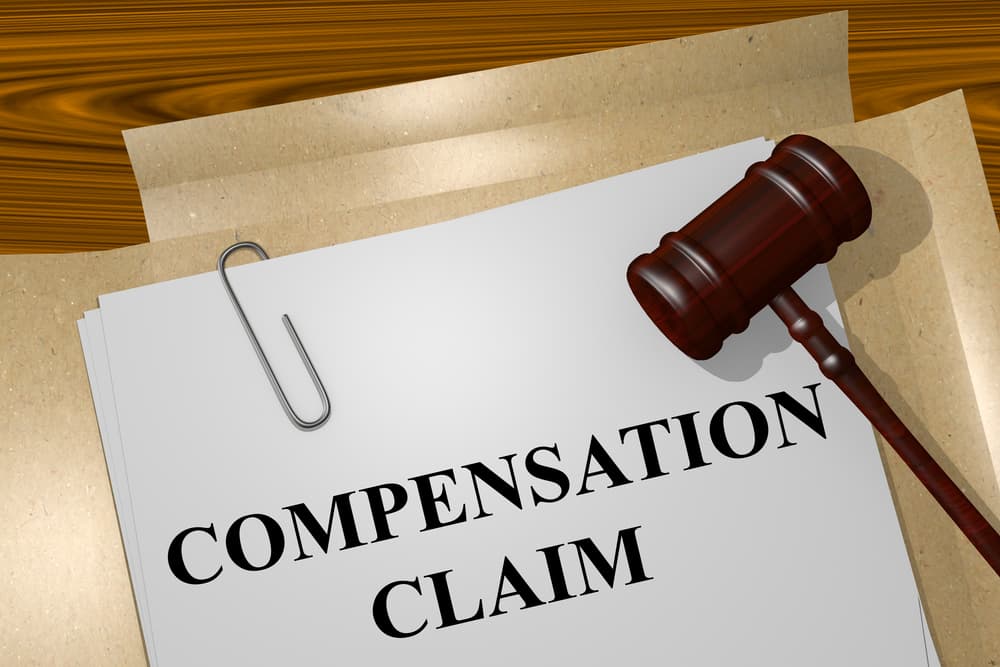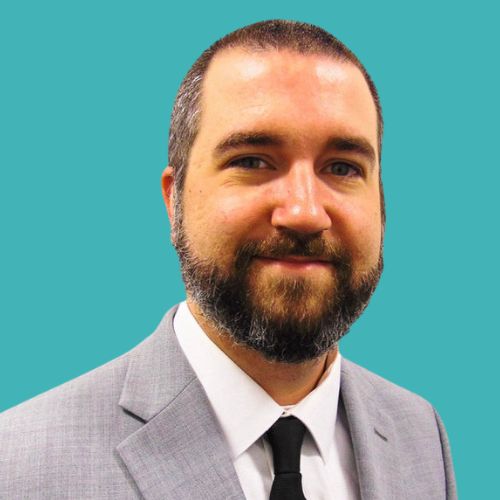In general, a wrongful death is a death that occurs because of someone else’s negligent, reckless, intentional, or criminal act. Some of the most common occurrences that lead to wrongful death claims and lawsuits include motor vehicle accidents, medical malpractice, and premises accidents.
If you recently lost a loved one due to the wrongful act of another, you need to speak with a knowledgeable wrongful death lawyer in your area as quickly as possible. Your attorney can promptly begin an investigation into your circumstances, gather appropriate documentation, and file a claim on your behalf.
Although no amount of financial recovery can ever compensate for the loss of a loved one, it can bring about a sense of closure and justice, both for yourself and other surviving family members.
Who is Eligible to File a Wrongful Death Claim or Lawsuit?
In most jurisdictions, certain individuals are eligible to file a wrongful death claim or lawsuit when a loved one dies due to the negligence or wrongful actions of another party. While specific eligibility criteria may vary depending on the jurisdiction, the following individuals are commonly allowed to pursue a wrongful death claim:

- Immediate Family Members – Immediate family members, such as spouses, children, and parents of the deceased, are typically eligible to file a wrongful death claim. These individuals are most directly affected by the loss and may seek compensation for the financial and emotional effects of their loved one’s death.
- Dependents and Beneficiaries – Dependents and beneficiaries who relied on the deceased for financial support or services may also be eligible to file a wrongful death claim. This can include minor children, adult children with disabilities, and other relatives who were financially dependent upon the deceased.
- Domestic Partners or Life Partners – In jurisdictions that recognize domestic partnerships or common-law marriages, domestic partners or life partners may be eligible to file a wrongful death claim. These individuals may have shared financial responsibilities or a significant emotional bond with the deceased, warranting compensation for their loss.
- Financial Dependents – Individuals who were financially dependent upon the deceased, even if they are not immediate family members, may be eligible to file a wrongful death claim. This can include individuals who relied on the deceased for financial support, such as stepchildren, foster children, or elderly relatives.
- Personal Representatives or Executors – In some jurisdictions, the personal representative or executor of the deceased’s estate may be eligible to file a wrongful death claim on behalf of the estate and its beneficiaries. This can include individuals appointed in the deceased’s will or by the court to manage their affairs after death.
It’s important to note that eligibility to file a wrongful death claim may be subject to certain limitations or restrictions, such as statutes of limitations, jurisdictional requirements, and the relationship of the claimant to the deceased. Additionally, some states may allow for punitive damages in wrongful death cases, which are intended to punish the at-fault party for their negligent or intentional actions.
If you believe you may be eligible to file a wrongful death claim, it’s essential to consult a qualified attorney who can evaluate your case, explain your legal rights, and guide you through the process of seeking justice and compensation for your loss.
Types of Occurrences that May Lead to a Wrongful Death
Wrongful death cases arise from a variety of tragic circumstances where someone’s death results from the negligence, recklessness, or intentional actions of another party. Here are some common types of occurrences that may lead to a wrongful death case:
- Car crashes – Car accidents are a leading cause of wrongful death cases. When a driver fails to follow traffic laws, drives recklessly, or drives under the influence of alcohol or drugs, they may cause an accident, resulting in fatalities.
- Medical Malpractice – Medical malpractice occurs when healthcare providers fail to meet the standard of care expected in their profession, leading to patient harm or death. Examples include surgical errors, misdiagnoses, medication errors, and birth injuries.
- Workplace Accidents – Inadequate safety measures, negligence, or violations of workplace regulations can lead to fatal accidents in various industries. Construction site accidents, industrial accidents, and accidents involving heavy machinery are common examples.
- Premises Liability – Property owners have a duty to maintain safe premises for visitors. Failing to address hazards such as slippery floors, inadequate security, or dangerous conditions on the property can lead to fatal accidents or injuries.
- Criminal Acts – Intentional acts of violence, such as assault, homicide, or manslaughter, can result in wrongful death cases. These may involve incidents of domestic violence, assault and battery, or other criminal acts.
- Nursing Home Abuse and Neglect – Elderly residents of nursing homes or assisted living facilities may suffer neglect, abuse, or mistreatment, leading to wrongful death. Negligence in providing proper care, medication errors, or physical abuse can result in fatal consequences.
- Recreational Accidents – Accidents occurring during recreational activities such as boating, swimming, or sports can lead to fatal injuries. Negligence, lack of supervision, or failure to follow safety protocols may contribute to these occurrences.
- Dangerous Work Environments – Certain occupations pose inherent risks, such as mining, firefighting, or law enforcement. Fatal accidents resulting from exposure to hazardous conditions, lack of safety protocols, or equipment failure may give rise to wrongful death cases.
Regardless of the circumstances, wrongful death cases seek to hold responsible parties accountable for their actions and provide compensation to surviving family members for their loss. Consulting a qualified wrongful death attorney can help families understand their legal options and pursue justice on behalf of their deceased loved one.
Elements of Proof in a Wrongful Death Claim or Lawsuit
In a wrongful death claim or lawsuit, several legal elements of proof must be established to demonstrate that the at-fault party is liable for the victim’s untimely death. Additionally, various types of evidence can be helpful in supporting these legal elements:
- Duty of Care – The claimant must prove that the at-fault party owed a duty of care to the deceased. For example, in a car accident case, drivers have a duty to drive safely and follow all traffic laws.
- Breach of Duty – The claimant must also demonstrate that the at-fault party breached the duty of care owed to the deceased. This involves showing that the at-fault party’s actions or failure to act fell below the standard of care expected in the given circumstances. For instance, if a healthcare provider fails to diagnose a patient’s condition accurately, resulting in their death, this may constitute a breach of duty.
- Causation – The claimant must further establish a causal link between the at-fault party’s breach of duty and the victim’s death. This requires demonstrating that the at-fault party’s actions or negligence directly contributed to or caused the victim’s death. Medical testimony and expert opinions may be used to establish causation in wrongful death cases.
- Damages – Finally, the wrongful death claimant must prove that they have suffered compensable damages as a result of the victim’s death. This can include economic damages such as medical expenses, funeral costs, and loss of financial support, as well as non-economic damages like pain and suffering, loss of companionship, and emotional distress.
To support these legal elements of proof, various types of evidence can be helpful in a wrongful death case:
- Medical Records – Medical records documenting the victim’s injuries, treatment, and cause of death can provide crucial evidence in establishing the cause and extent of the harm suffered.
- Eyewitness Testimony – Witness statements from individuals who observed the events leading to the victim’s death can help corroborate the claimant’s version of events and establish liability.
- Expert Testimony – Expert witnesses, such as medical professionals, accident reconstructionists, or forensic specialists, can provide specialized knowledge and opinions regarding the circumstances of the death and the at-fault party’s liability.
- Documentation of Financial Losses – Documentation of the financial losses that the claimant suffered as a result of the victim’s untimely death, such as funeral expenses, lost income, and loss of future financial support, can help quantify the damages sought in the wrongful death claim.
- Physical Evidence – Physical evidence, such as photographs of the accident scene, autopsy reports, and forensic evidence, can provide objective documentation of the circumstances surrounding the victim’s death.
By presenting compelling evidence that addresses the legal elements of proof in a wrongful death case, individuals can strengthen their claims and increase the likelihood of obtaining a favorable outcome in their lawsuit or settlement negotiations. Working with an experienced wrongful death attorney who understands the nuances of wrongful death law can help claimants effectively navigate the legal process and advocate for their rights on behalf of their deceased loved one.
Taking a Wrongful Death Case to Trial or Arbitration
A wrongful death trial or arbitration proceeding is a legal process where the parties involved present evidence, arguments, and testimony to a judge, jury, or arbitrator to determine liability and damages. Here’s what typically happens during these proceedings:
- Preparation – Before the trial or arbitration begins, both parties engage in extensive preparation. This involves gathering evidence, identifying witnesses, drafting legal arguments, and preparing exhibits to present during the proceedings. Attorneys for both sides may also engage in pre-trial negotiations to try and reach a settlement agreement.
- Jury Selection (If Applicable) – In cases where a jury will decide the outcome, the process begins with jury selection. Attorneys from both sides question potential jurors to ensure that they can be fair and impartial. The attorneys then select a jury from the pool of eligible jurors.
- Opening Statements – The trial or arbitration proceedings start with opening statements from each side. Attorneys outline their case, present the key facts and evidence they intend to present, and provide an overview of the arguments they will make to support their positions.
- Presentation of Evidence – Both parties present evidence to support their respective claims. This may include witness testimony, expert opinions, documents, photographs, and other exhibits. Attorneys may question witnesses and introduce exhibits to bolster their case and undermine the opposing party’s legal arguments.
- Cross-examination – After witnesses testify for one side, the opposing party has the opportunity to cross-examine them. Cross-examination aims to challenge the credibility of the witness, uncover inconsistencies in their testimony, and elicit information that supports the opposing party’s case.
- Closing Arguments – Once all evidence has been presented, each side delivers closing arguments to summarize their case and persuade the judge, jury, or arbitrator to rule in their favor. Attorneys may highlight key points, address any weaknesses in the opposing party’s case, and emphasize the evidence supporting their arguments.
- Deliberation and Verdict – If the case is being heard by a jury, they will deliberate on the evidence and arguments presented and reach a verdict based on the preponderance of the evidence or other legal standards. In arbitration, the arbitrator will render a decision after reviewing the evidence and arguments presented by both sides.
Overall, a wrongful death trial or arbitration proceeding is a complex legal process that requires thorough preparation, persuasive advocacy, and careful presentation of evidence. By effectively presenting their case, parties can seek justice for the deceased individual and obtain compensation for their losses and damages.
Recovering Wrongful Death Compensation

In a wrongful death claim or lawsuit, recovering compensation involves seeking financial restitution for various losses and damages. Here’s how compensation is typically recovered in a wrongful death case:
- Determining Damages – The first step is determining the damages that surviving family members suffered as a result of the wrongful death. Damages may include medical expenses incurred before the victim’s death, funeral and burial expenses, loss of financial support, loss of companionship, and emotional distress.
- Calculating Economic Damages – Economic damages are tangible, quantifiable losses that can be calculated based on actual expenses and financial losses that the surviving family members incurred. This may include past and future medical expenses, lost income and benefits that the deceased individual would have provided, and funeral and burial costs.
- Assessing Non-economic Damages – Non-economic damages are intangible losses that are more difficult to quantify, such as pain and suffering, loss of companionship, and emotional distress that the surviving family members experienced. These damages are typically assessed based on the nature and extent of the relationship between the deceased individual and the claimants, as well as the effect of the death on the claimants’ lives.
Seeking compensation in a wrongful death claim or lawsuit requires careful assessment of damages, strong evidence of liability, and effective legal representation. By pursuing their legal rights, surviving family members can seek justice for their loved one and obtain the financial support they need to move forward with their lives.
Contact an Experienced Wrongful Death Attorney in Your Jurisdiction Today

If you recently lost a loved one in an occurrence that resulted from someone else’s negligent or otherwise wrongful act, you need to speak with a personal injury lawyer experiened in wrongful death cases in your area as quickly as possible. Your attorney can determine your eligibility for filing a wrongful death claim or lawsuit and take the necessary steps to recover the justice and compensation that you and your family deserve.